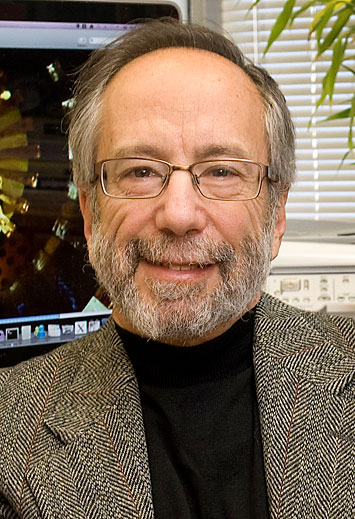Laurence Littenberg Named Senior Scientist Emeritus
September 7, 2017
For his noteworthy contributions to Brookhaven Lab, former Physics Department Chair Laurence Littenberg was granted emeritus status upon his retirement in July 2016.
Littenberg joined Brookhaven's Physics Department in 1974 as an associate physicist, after spending four years as a senior research associate at Daresbury Laboratory in England. Over the years, he rose through the department's ranks, earning tenure in 1983 and being promoted to senior physicist and leader of the Electronics Detector Group in 1989. By 2007, he was the associate chair of the department. Six years later, he was appointed chair—a role he served until his retirement. Littenberg is a fellow of the American Physical Society and the American Association for the Advancement of Science, and has served on numerous advisory panels, including the High Energy Physics Advisory Panel and several U.S. Department of Energy review committees.
According to a letter written by Lab Director Doon Gibbs, Littenberg "brought great recognition to the Laboratory as a leader in the field of rare kaon decays."
Littenberg's pioneering work led to the discovery of the rare kaon decay, an achievement recognized in 2011 by the American Physical Society's W.K.H. Panofsky Prize in Experimental Particle Physics that he shared with his university collaborators.
Gibbs also highlighted Littenberg's leadership of the construction of the muon-veto system for the Daya Bay neutrino experiment, for which he and other scientists were awarded the 2016 Breakthrough Prize in Fundamental Physics. This system was critical in making a precise measurement of a non-zero value of the neutrino mixing angle theta 13 that means it is possible for a violation in the combined charge conjugation and parity symmetry to be measurable in the neutrino sector. Measurement of the parameter characterizing this violation is the main goal of the international Deep Underground Neutrino Experiment.
"I am very grateful to Brookhaven for my very productive 42-year career," said Littenberg. "I can't imagine a more supportive environment than the one from which I benefitted here. My emeritus status allows me to keep involved with developments in my field and to work on scientific reviews and other projects."
Meet 12 other scientists who have received emeritus status
2017-12483 | INT/EXT | Newsroom










